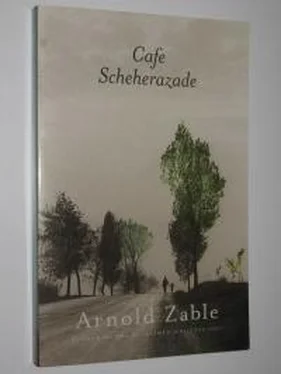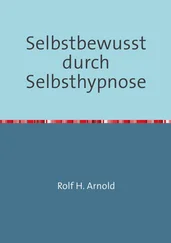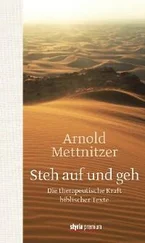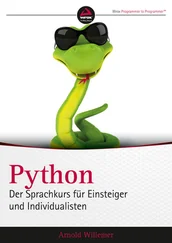Arnold Zable - Cafe Scheherazade
Здесь есть возможность читать онлайн «Arnold Zable - Cafe Scheherazade» весь текст электронной книги совершенно бесплатно (целиком полную версию без сокращений). В некоторых случаях можно слушать аудио, скачать через торрент в формате fb2 и присутствует краткое содержание. Город: Melbourne, Год выпуска: 2001, Издательство: Text Publishing Company, Жанр: Проза, на английском языке. Описание произведения, (предисловие) а так же отзывы посетителей доступны на портале библиотеки ЛибКат.
- Название:Cafe Scheherazade
- Автор:
- Издательство:Text Publishing Company
- Жанр:
- Год:2001
- Город:Melbourne
- ISBN:нет данных
- Рейтинг книги:4 / 5. Голосов: 1
-
Избранное:Добавить в избранное
- Отзывы:
-
Ваша оценка:
- 80
- 1
- 2
- 3
- 4
- 5
Cafe Scheherazade: краткое содержание, описание и аннотация
Предлагаем к чтению аннотацию, описание, краткое содержание или предисловие (зависит от того, что написал сам автор книги «Cafe Scheherazade»). Если вы не нашли необходимую информацию о книге — напишите в комментариях, мы постараемся отыскать её.
Cafe Scheherazade — читать онлайн бесплатно полную книгу (весь текст) целиком
Ниже представлен текст книги, разбитый по страницам. Система сохранения места последней прочитанной страницы, позволяет с удобством читать онлайн бесплатно книгу «Cafe Scheherazade», без необходимости каждый раз заново искать на чём Вы остановились. Поставьте закладку, и сможете в любой момент перейти на страницу, на которой закончили чтение.
Интервал:
Закладка:
"And I must have soap, on hand, everywhere. For ten months I did not have a shower or a bath; for almost a year I lived with the stench of the unwashed; so today I keep bars of soap on every sink, in the shower recesses, in every cupboard, in every room, and I wash myself many times a day. It is a madness, I know, but
I cannot help it. I cannot stand the thought of being unclean. I cannot see continuity in my journey, only broken lines."
Towards the end of 1940, Laizer and his fellow inmates were marched from Lvov prison to the central station. They were herded into cattle wagons and conveyed north, through the Ukraine to
Byelorussia. They skirted Moscow to the north-east, spent days shunted aside in carriages idling on provincial tracks, jerked forward in stops and starts, and came to a final halt, an eternity later, in Kotlas, a frontier town at the end of a northwestern Russian line.
They journeyed from Kotlas by river barge, hundreds of kilometres north, to Pechora, a town perched on the western flanks of the
Urals. They marched on by foot into a world of permafrost and gales. They trudged over frozen streams, across 63 desolate plains of white, broken by an occasional tree, a solitary hut, a stunted bush. They marched as if in a trance, beyond exhaustion. Beyond dates. Beyond all reckoning.
They moved on even as Laizer fell. The snow was a soft cushion calling for surrender. It seemed to wink at him. He gave in to an imagined warmth. He felt a blessed sense of relief. He closed his eyes, sank towards oblivion, and allowed the life-force to drift away. The world was receding from his grasp.
He was about to give way when he felt a succession of sharp blows against his body. Laizer was struck in the ribs, his legs, his upper arms, and thighs. He opened his eyes and glimpsed, standing over him, his Polish comrade, a former policeman, the fellow prisoner who had become his marching partner, his closest friend.
He observed his friend's fury as he kicked, and he heard his words, as if drifting in another realm: "Get up! Get up you fool!
Get up you hopeless shit!"
It took some time for Laizer to awake from his stupor, to feel the pain. As he stirred, he glimpsed the night sky. He heard the voice drifting closer. He felt the marrow seeping back into his bones. His comrade dragged him to his feet, slapped his face, gave him one last kick, and propelled him into the night.
As he stumbled on, Laizer observed an eerie light cast upon the snow. When he glanced up he saw a full moon so large and so near, it seemed he could reach out and touch it. Or eat it. Or step onto it, to wander its desolate craters and hills. It filled the skies. It filled the heavens. It filled his entire being, and, for a 64 moment, it took him away from the smell of sweat, the lifesapping fatigue, the struggling breath.
On that night, under an impassive moon, Laizer discovered parallel universes, hovering side by side, one of beauty, one of ugliness, one permeated by darkness, the other suffused with light. On that night Laizer regained his childhood sense of naivety and awe; and he realised that by learning to manoeuvre between these alternate universes he could generate the charge of energy necessary for him to pull through. On that night, Laizer became a survivor.
Broken lines and maps. I look them up in the library, in the
Times Atlas of the World. I search for Vorkuta, the labour camp where Laizer's long march came to an end. I turn to a map of the
Arctic, the roof of the world, the point at which the lines of longitude converge to form the North Pole.
I become giddy, nauseous almost, merely by tracing the lines.
From Vorkuta, latitude 68 degrees north, I move anti-clockwise, in a circle, following the line of latitude over the polar Urals, the East Siberian and Bering seas, across Alaska, via the Arctic
Ocean, to a white expanse known as Greenland, and beyond it to the Barents Sea, full circle back to Vorkuta.
I have sensed the vastness. I am plotting lines that form ancestral maps, that unify fractured journeys across continents and oceans; lines that convey ancient melodies and longings, 65 and twist and curve and break off into unexpected detours, to converge upon a cafe called Scheherazade.
I find them there, of course, when next I return. The unlikely trio. Yossel, Zalman and Laizer. Bent over their pastries and coffees. And they know what I am looking for.
"He makes a living from them, that no-good scribbler," says
Laizer.
"And why not?" says Zalman.
"Better to sell stories than shmuttes, recycled rags," adds
Yossel.
"You earn far more selling shmuttes," I reply.
"I am not so sure of that," says Zalman.
"And what, my philosopher friend, can anyone be sure of?" asks
Laizer.
"Perhaps only stories," says Zalman. "The rest is speculation."
"So, my clever little philosopher," retorts Laizer. "What makes you so sure about the value of stories? Most of us tell them in such a way that we look good, and others look bad. We twist everything to our advantage. We do not tell stories. We create bobbe mayses. Grandmothers' tales!"
"At least they help pass the time," says the prosaic Yossel.
"So! I can see it now! I know your little tricks. You are winding up to tell us your bobbe mayses about your wonderful Warsaw and
Krochmalna Street. You are preparing to tell us about your nogood friends Mendel Mandelbaum and Stanislaw the pimp. And how you became a hero in underpants."
66
"Yossel is right," Zalman intervenes. "We tell stories to kill time. After all, this is how we passed the time in Wolfke's when the world was coming to an end."
"Such pearls of wisdom, such wonderful turns of phrase, you clever little philosophers!" says Laizer. "It was easy to be clever while you sat in Wolfke's and let time idle by. While you were waiting for the end of days, I was labouring beneath the snows of Vorkuta. And while you were travelling away from Vilna, first-class, I was pushing boulders up ice-clad hills.
"Martin, you cannot imagine it," Laizer tells me, as Yossel and
Zalman move away. "We lived in the Arctic Circle. We lived with lice. We would bet on them for entertainment. How do you say it in English? Odds or evens. We counted them and, when we got sick of the game, we would make a fire in the barracks, take off our shirts, hold them over the flames, and watch the parasites drop off. They fell in the hundreds; and a day later they were back again.
"You cannot imagine it. In winter the earth was a solid mass, rock hard. In summer it softened. The soil was covered in red berries and moss. We were building an airfield. We moved rocks with our raw hands. Two people could barely carry them. We were like Sisyphus, lifting stones, dropping them, and watching them roll backwards. Our food rations depended upon how many rocks we moved, so like Sisyphus we retrieved them and started all over again.
"After a month or so I was sent to work in the coal mines. This was the highlight of my stay. We descended by lift, perhaps 67 two hundred metres under the earth. We worked in complete darkness, waist-deep in ice-cold water. We froze and choked on the dust. And all I could think of was food, my daily ration of bread.
"I was obsessed with food. When I fell asleep, I dreamt of my mother's cholent and roasts, Wolfke's brisket and schnitzels, Vilna's bakeries and cafes. All the wise sayings of the philosophers were reduced to just one thought: food. We searched every corner, every obscure hole, for just one more crumb.
"We were entitled to a ration of bread, perhaps six hundred grams, that is, if you fulfilled your work quota for the day.
Otherwise an amount was deducted. The bread was lousy and the bread cutters were criminals. Sometimes they would cut off a bit less so they could keep more for themselves.
Читать дальшеИнтервал:
Закладка:
Похожие книги на «Cafe Scheherazade»
Представляем Вашему вниманию похожие книги на «Cafe Scheherazade» списком для выбора. Мы отобрали схожую по названию и смыслу литературу в надежде предоставить читателям больше вариантов отыскать новые, интересные, ещё непрочитанные произведения.
Обсуждение, отзывы о книге «Cafe Scheherazade» и просто собственные мнения читателей. Оставьте ваши комментарии, напишите, что Вы думаете о произведении, его смысле или главных героях. Укажите что конкретно понравилось, а что нет, и почему Вы так считаете.












